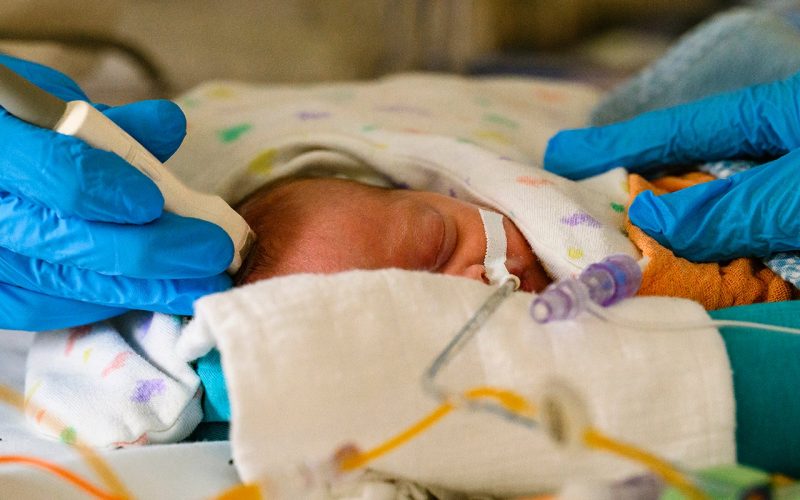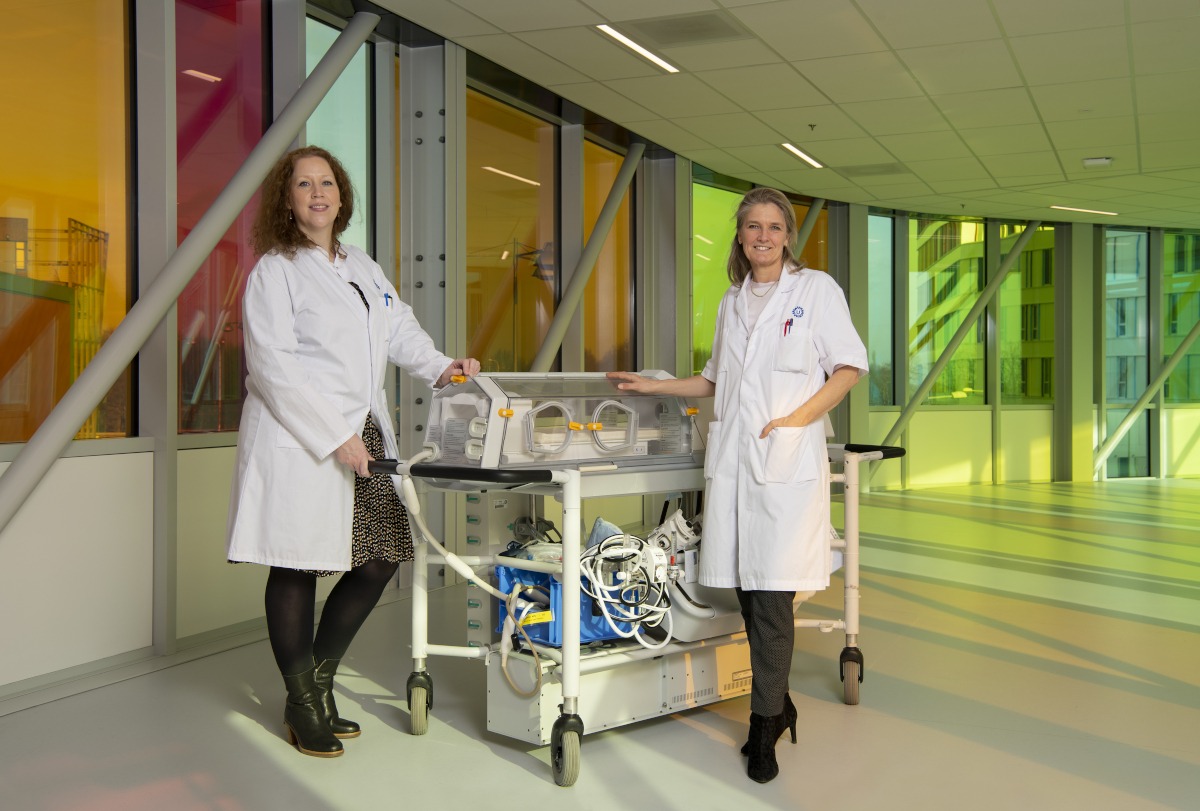Researchers from UMC Utrecht have received the green light for a new study on stem cell therapy for newborns with brain damage. Thanks to a total grant of 5 million euros from Zorginstituut Nederland, ZonMw, the Brain Foundation Netherlands (Hersenstichting), and the Vrienden UMC Utrecht & Wilhelmina Children’s Hospital, the effectiveness of this promising therapy can now be tested. The study, called iSTOP-CP, is also supported by Maastricht UMC+, with whom UMC Utrecht has a long-standing collaboration on this research.
Babies who suffer a stroke or experience oxygen deprivation during birth can sustain severe brain damage. This damage can lead to permanent neurological problems, such as cerebral palsy (CP), which negatively impacts the child’s motor skills and development. Unfortunately, there is currently no effective treatment available for babies with brain damage, often leaving them dependent on care and support for life.
Thanks to an earlier grant from ZonMw, the research teams led by neuroscientist Cora Nijboer and pediatrician and professor Manon Benders at UMC Utrecht developed a new therapy based on nasal drops containing so-called ‘mesenchymal stem cells,’ sourced from healthy donors. “Mesenchymal stem cells are known to secrete many beneficial substances, such as growth factors,” Nijboer explains. “They can help reduce inflammation, which is crucial for brain tissue recovery. Additionally, the stem cells have regenerative properties, which stimulate the production of new brain cells and thereby contribute to the brain’s recovery processes.” This was first demonstrated in Nijboer’s laboratory.
Cora Nijboer & Manon Benders
In a subsequent safety study, the researchers administered the stem cells without any side effects to ten newborns with a stroke. Although this research was not focused on the therapy’s effectiveness but rather on its safety, the development of the ten treated babies was encouraging. With this new grant, Benders and Nijboer can now launch the iSTOP-CP study, which aims to determine how effective the stem cell therapy really is.
Various patient associations, including Care4Neo and CP Nederland, as well as international organizations like the Cerebral Palsy Foundation, the Cerebral Palsy Alliance, and Fondation Paralysie Cérébrale, have expressed their support for this important initiative. This broad support underscores not only the urgency of the issue but also the hope of patients and their families for a new promising therapy. Since babies with this type of brain damage are relatively rare, this study is only possible thanks to the intensive collaboration of all neonatal intensive care units within the Neonatology Network Netherlands (N3).
In total, the researchers will include 162 babies who sustain brain damage around birth in their study. These children are yet to be born. “Within seven days of birth, we will treat the babies with either stem cells or a placebo,” says Manon Benders. “We will evaluate the effectiveness of the therapy based on their motor and cognitive development at the age of 24 months.”
If the new study yields positive results, the stem cell therapy could have a significant impact on the treatment of brain damage in newborns. The results will be combined with a health economic impact analysis, conducted by researcher Renske ten Ham, who also works at UMC Utrecht. Based on all this information, it will be determined whether the therapy should become a standard treatment in Dutch neonatal care.
The iSTOP-CP study will begin in October 2025.
Through the Promising Care (‘Veelbelovende Zorg’) program, the Zorginstituut and ZonMw enable researchers and healthcare professionals to develop and test new treatment methods and care concepts. The program focuses on promoting innovation by developing effective treatment methods that can have a positive impact on the health and quality of life of patients. Moreover, Promising Care fosters collaboration between healthcare institutions, universities, and patient organizations, allowing knowledge and experiences to be shared.
By funding these innovative care projects, Promising Care contributes to improving patient care in the Netherlands. It gives researchers the opportunity to develop groundbreaking therapies and treatment methods, which can lead to better outcomes for vulnerable groups, such as newborns with serious conditions.
To make this promising research into stem cell therapy for babies with brain damage possible, the Zorginstituut, ZonMw, and the Brain Foundation Netherlands (Hersenstichting) are joining forces for the first time.

